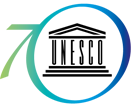WWAP Publication Launch
On 9 November 2015, the UN World Water Assessment Programme launched its publication on “Sex-disaggregated Indicators for Water Assessment, Monitoring and Reporting”.
The event was moderated by the WWAP Coordinator, Stefan Uhlenbrook who explained the importance of the technical report.
Saniye Gülser Corat, Director of the Gender Equality Division at UNESCO was one of the panelists along with H.E. Lionel Strenghart Veer, Ambassador Extraordinary and Plenipotentiary of the Kingdom of Netherlands, Permanent Delegate, Permanent Delegation of the Kingdom of the Netherlands to UNESCO; Arnaldo Minuti, Deputy Permanent Delegate, Permanent Delegation of Italy to UNESCO; Engin Koncagul, Programme Officer, UN World Water Assessment Programme, UNESCO; and Lesha Witmer, Steering Committee member, Women for Water Partnership.
Ms Corat highlighted the importance of sex-disaggregated data, especially during a time when states have recently defined both gender equality and clean water and sanitation as stand-alone sustainable development goals. She said: “The international community has identified that the future development agenda needs to have a strong focus on addressing inequalities, which includes gender and water. Disaggregated data is particularly crucial to assess water and gender equality issues, issues that are vital to humankind’s survival and prosperity.”
This WWAP publication aims to go beyond recommendations and advocacy. The technical paper serves as an instrument that explains and illustrates a series of concrete indicators and methodologies on how to collect sex-disaggregated water data.
With the collaboration of many international experts in the fields of gender equality, agriculture, sanitation, social science, anthropology, geography, and transboundary water, the goal of the paper is to significantly expand the state of global knowledge.


